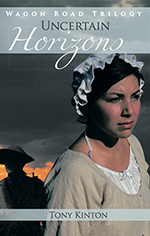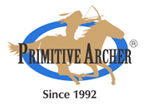A Sharps in Africa
A Sharps in Africa: The Highs and Lows
The Milky Way was at arm’s length, asking, it seemed, to be brushed by feeble fingertips that tingled in a night chill. On the edge of that expanse was the Southern Cross, a marvel of nature and symbol of tranquility. I stood in reverent awe, allowing this scene to sink to my very core and bring refreshment from a dour mood that had consumed the day just ended. There was some transformation as a result, but tranquility didn’t immediately become the overriding emotion.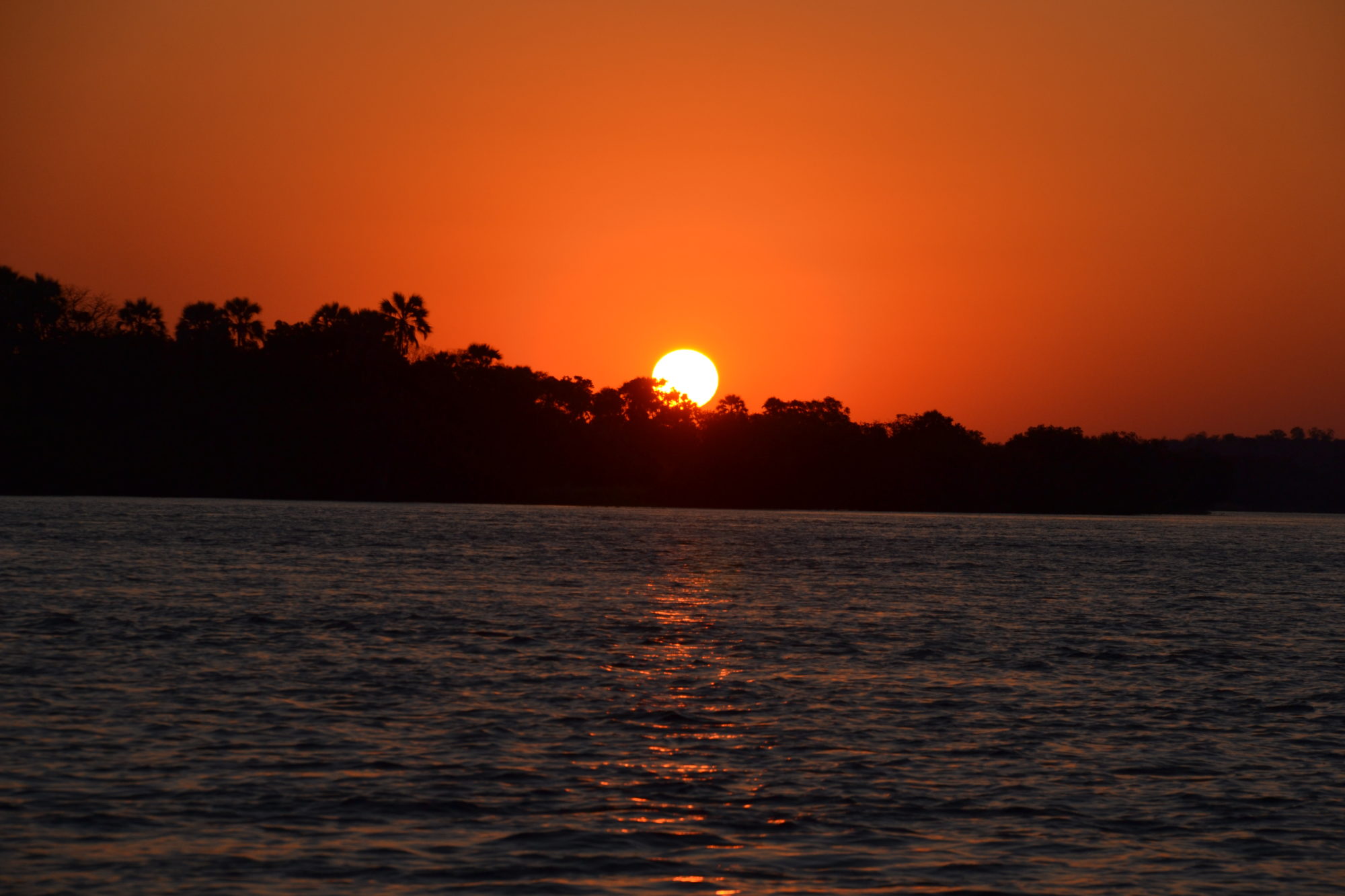
The evening in question closed the third of a five-day hunt in South Africa. I had booked with Louis Steenkamp (www.sofalasafaris.com), as I had the previous year. That adventure had been near perfect, and I was able to collect a fine nyala bull while using an Osage selfbow and cedar arrows. I had hoped for a similar experience on this trip, but nothing had worked out as desired. For three days gusty winds had battered the bushveld, the only constant being their variables. From the south one minute; from the north the next. And between these, the east and west were not neglected. The scent of hunter and PH permeated every inch in every direction. Game was locked down.
And to make matters even more complex, abundant rainfall during May held this June expedition captive. Leaves that should have littered the bushveld floor still clung tenaciously to branches, creating a veritable curtain that hid with certainty any creature that might be there. Even the waterholes were sustaining precious little use during daylight. Two days remained, and here I was beneath that glorious sky, looking upward for solace.
Louis Steenkamp is a true gentleman. I have known him for years, and he has visited my home and trophy room on more than one occasion. He was sympathetic and understanding of my situation and offered encouragement. However, if things didn’t change soon, I stood a reasonable chance of leaving Africa with all my black-powder cartridges unfired.
I recall those early meetings with Louis and how he was intrigued by my rather antiquated methods of doing things. He fondled the homemade stickbows I use and practically melted with glee at the heft of my C. Sharps Bridgeport in .45 – 2-1/10”. Plans for future hunts began then, and in 2013 the nyala hunt came to be. While on that safari, he and I concocted the one we were now on. This one would be done with the Sharps, a zebra and waterbuck being the primary species of interest.
And I had seen both. Fleeting glimpses through the bush. I had also seen gemsbok and wildebeest at two different waterholes while sitting in a desperate attempt to gain a clear shot at either of the two I sought. I had the gemsbok and wildebeest from my first hunt in Africa, so they were of no interest other than the majesty they exemplified in this monstrously perplexing land. Not an insignificant matter, this majesty, but not animals I opted to collect.
The next day showed some improvement, with winds abated to a degree. We elected to sit a waterhole early on and move about the bush as the day aged. Only minutes before we left that blind, off in the distance something was twisting and creeping through thick cover. A jackal. I was instructed to take him if the opportunity arose, so I made ready for the shot. A jackal was hardly a test for the black-powder load, but he would require precise shot placement, this on a small target. When the canine closed to within 50 yards and reached a spot clear of brush, the Sharps rumbled and the jackal crumpled. Not a zebra or waterbuck but a shot well made. I was pleased. Then the winds renewed their vigor.
With all this mention of black powder and loads containing such, there are certainly viable questions of how this was accomplished. Flying with black powder, whether loaded or in bulk, is not allowed. In fact, attempting to do so is a sure recipe for some serious legal issues. It simply must be avoided, regardless of the gymnastics attempted to cover the infraction.
After a great deal of discussion via email and phone with Louis prior to the hunt, he discovered that South Africa had a provision that allowed a PH to acquire a one-use permit to purchase and transport black powder and primers for client use. That fit my needs perfectly. Louis eventually sent me a picture of him holding a can of Swiss 1-1/2 and a box of Federal 215 Magnum Rifle Primers. The remaining chores became mine.
I ordered a small Lee press from Midway. This I fit to a thin oak board with bolts and wing nuts. Louis had “C” clamps available, so this unit could be attached to a concrete ledge near the patio at Sofala’s lodge. I prepared the cases here at my reloading station and packed these and the cast bullets I had made and lubed with SPG. Cases and bullets – unloaded and properly packaged – create no problems with the airlines. I did declare them but was quickly given the go-ahead.
Also in the packing were John Walters .060 wads, a section of copper tubing flared on one end, a small oak holder for the tube, a tiny brass funnel to be taped to the copper, an RCBS electronic scale and a box of dies consisting of a compression, seating and taper crimp. A cheap metal spoon was thrown in the mix for the purpose of transferring powder onto the scale. I must admit this makeshift reloading contrivance worked to perfection. The first load fired punched the eight ring dead center elevation at 100 yards on the trial run.
Before I realized it and certainly before I expected it, I found myself on the last afternoon of this particular hunt. With emotions increasingly frayed and disappointment hovering about me in a smothering cloud, Louis and I went to an elevated blind near an aging cattle pen left over from ranching on Sofafa in the 1960s. A water tank was in the distance; wire fencing rusted and sagged in solemn reflection of days past.
A plus this spot afforded was open brush. Things weren’t as tangled and cluttered as in most areas, and the possibility of seeing game move about was enhanced. A ranch road made a 90-degree beside the blind, so enhanced visibility was accomplished. The final vigil was underway.
And there he was, creeping silently along a drooped fence and making his way toward an opening of rich, red African soil. An Impala ram. Not one for the record books, but a mature specimen just the same. I care little for record books.
Each time he would look away or put his nose toward the ground, I would inch the Sharps into position. When he looked up, I dutifully stopped, frozen in the moment. At a solid opening and with the Sharps properly set, I touched the trigger. A great rumble reverberated across bushveld and a putrid blue/grey cloud of smoke obscured the view. Still, there was no doubt of what had happened. That whump of bullet strike told the story. The ram lay motionless, grand even in this terminal posture. I crept from the hide, walked to the ram, removed my hat and offered a prayer of respect and thanksgiving. The sun was now an orange phantom beneath thick bush to the west.
That night I again revisited the Milky Way and Southern Cross. My heart was light, filled with gratitude. The only somber emotions were triggered by the reality that I would leave this land of magic the following day. Next year, the zebra and waterbuck and Sharps.
And next year came! May again, and again some of the same frustrations faced a year back. Rains had been persistent, and vegetation was thick and lush. Not ideal for sneaking about in search of game. Louis had secured the powder and primers from the previous year, so I planned to do things in similar fashion as I had done before. But there were changes.
One was the addition of an MVA Model “B” scope. Already aging eyes had grown a year older, and I was having difficulty with the tang sight and blade front. I could and did still employ these units, but I opted to try the scope. It was and is amazing. The MVA tube will remain a permanent fixture for hunting with the Sharps.
Some other modifications came in the loading process. I had used the Lyman 457193 on the jackal and impala, as well as on whitetails and wild hogs here at home. It is a reliable hunting bullet. But I wanted something with a more pronounced meplat and increased weight. This project began with the Lyman 457125. The round nose of that bullet would be adapted to a broad meplat if possible.
My friend Neal, who is a consummate tinkerer and dedicated black-powder shooter, suggested we cast some bullets from the 457125 and attempt to judiciously remove a part of that bulbous nose. We did this by wrapping the grease groves in masking tape and gently putting the bullets in a lathe. We marked the nose and carefully chiseled that nose to desired proportions. Results were more than positive. After weighting and inspecting some of the modified bullets, we found that we were consistently producing projectiles with a wide meplat and average weight of 485 grains. Trial runs with SPG-lubed bullets ahead of 68 grains of Swiss 1-1/2, .030 Walters wads and Federal 215M primers worked perfectly. I had my combo.
One other thing I wanted to try, this in an effort to take as little loading gear as possible, was to simply load cases minus weighing the charges and skipping the drop-tube procedure. I did this by weighing 68 grains of Swiss and pouring it into a bulk measure customarily used in loading my flintlocks. With the measure set at that increment, I placed a brass funnel into the prepared case and poured slowly from the bulk measure and into the case. Again, positive results. I would not need scales and drop tube, a plus when packing sparsely for air travel. Forty prepared cases and as many trimmed and lubed bullets, along with a brass funnel, measure, Lee press and dies accompanied me to Africa.
Things progressed slowly the first four days – that is if collected game is an indicator. Zebras scurried about thick brush, hoof beats on red soil the only proof they were ever there. One particularly handsome waterbuck led us on a full-day sojourn through thorns and along two-tracks without so much as an anticipated shot. And there was even one of the striped marvels that almost played his hand poorly. He stopped within range, but offered nothing but hind quarters protruding from tangles. I guess he played that hand wisely after all. We kept at the chore; time was slipping away. And then the shot I had waited for.
On the next to last day, Louis and I were sorting through bushveld clutter when we heard what was no doubt a collection of zebras running right to left. Louis dutifully and spontaneously set the sticks; my Sharps found its place there. Five or six equines zipped past, never pausing to give additional study to whatever it was they were running from. What they were running from didn’t matter to me, and apparently not to them. What did matter was that it seemed the entire group had gotten by with no shot offered. But then there was another and perhaps even another in addition to that one, there off in the distance but still on the right path.
That anticipated moment came quickly. One zebra stopped behind thorn bush, his entire posture one of energized muscle mass and wondrous striped beauty. A tiny opening was there, the Model “B” settled and the Sharps thundered. Time stopped. But it didn’t stay in suspension long. The zebra that was the object of my attention bolted. Still, it was immediately obvious that he would not go far. Knelling beside that magnificent creature brought again to my heart and mind a deep sense of gratitude.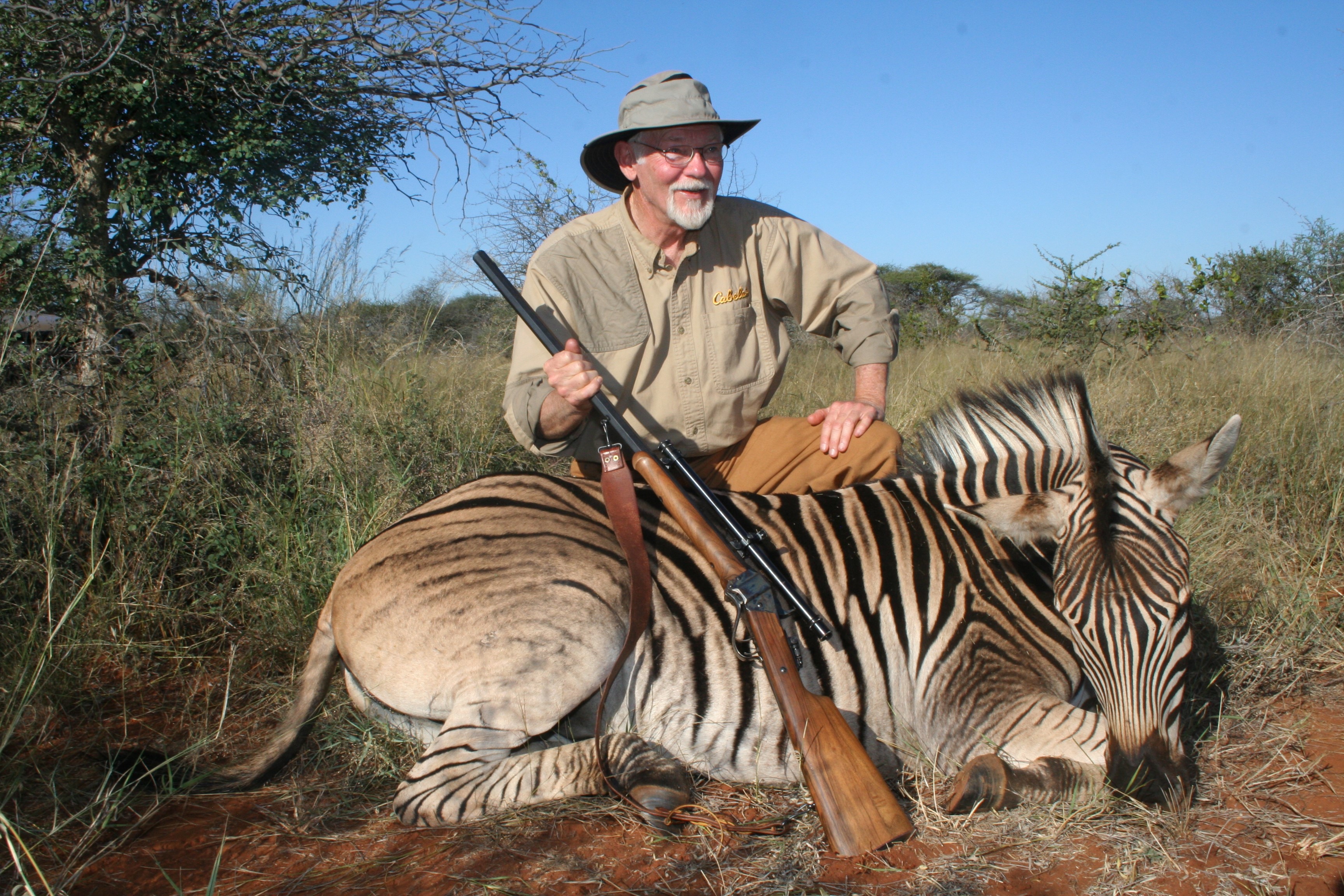
Nighttime found me staring again at the sky, words of thanksgiving drifting upward. Tomorrow I would make ready for the trip home.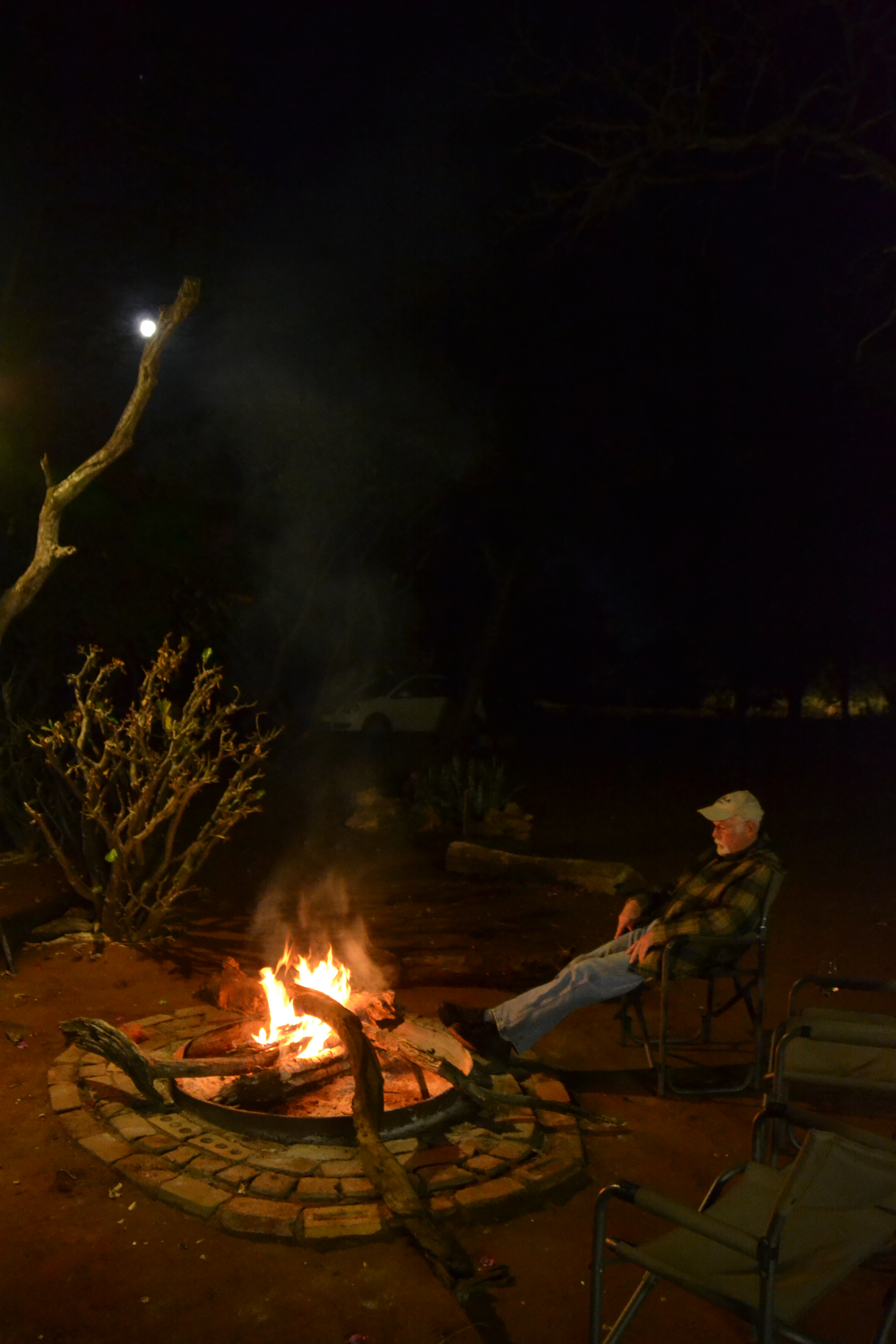

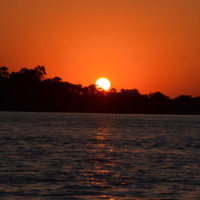
 Tony Kinton is a native Mississippian, where he grew up on a small farm. Hunting and fishing were regular parts of his life, and these pursuits produced much of the food found on his family’s table.
Tony Kinton is a native Mississippian, where he grew up on a small farm. Hunting and fishing were regular parts of his life, and these pursuits produced much of the food found on his family’s table. 
